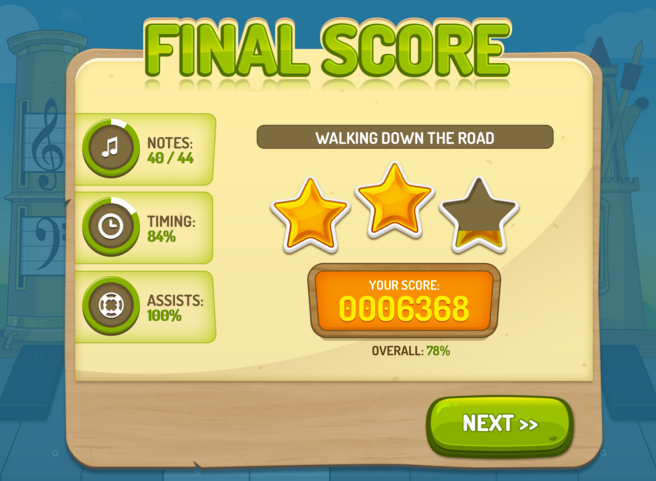So You Want to Be a Songwriter

Do you want to be a songwriter but don’t know where to begin? Here’s a hint: you’re getting warmer, so read on!
Becoming a songwriter is a worthy goal. You get to share your perspective on the human experience and strike a chord in the hearts of your listeners. Once you write down the words and the tune in your head, you are a songwriter!
However, it takes hard work and determination to make a living writing songs. We’ll show you how to find your niche, refine your skills, and get the attention your talent deserves.
Songwriting prospects.
Songwriting is a multi-faceted field. If you have creativity and an ear for music, songwriting may be for you. Here are some of the different directions you can take your skillset:

Singer-songwriter
Some songwriters write their music and lyrics and sing original songs on the radio. This requires a lot of inspiration and talent! As a singer-songwriter, you get to have a hand in the song production from start to finish. You can make sure your music sounds exactly how you want it.
Bands
Songwriting is often a collaborative effort. If you are in a band, you may work on an album and write songs together. John Lennon and Paul McCartney from the Beatles are prime examples of collaborative songwriting. The result was true greatness.
Ghostwriter
Maybe you love the creative aspect of writing songs but are looking for specific vocals to bring your music to life. Working with a professional singer could be a dream come true.
Movie scores
Writing the music for movies and musicals can be a dramatic and rewarding experience. If you can break into this gig, you are one of the lucky few. You could be the next Andrew Lloyd Webber or Hans Zimmer.
Advertising jingles
You can also write jingles for commercials on T.V. This can be an excellent way to monetize your songwriting skills and get your start in the industry.
Whichever niche you choose, you will need to get to know your target audience, keep up with the trends, and put your creative touch on the songs.
Acquiring a professional skillset.
To become a songwriter, you want to make sure your skills are marketable. Having a musical background and some recording skills will help you keep up with the competition.
Here are some professional skills that can help you bring life to your songwriting dream:

- A fine arts degree in music and creative writing
- Marketing and research skills
- Time management skills
- Good written and verbal communication
- Ability to work in a team and collaborate with other artists
- Experience in the music industry
- Ability to record demos using computer software
Many famous artists and songwriters were born with natural talent–some were even self-taught musicians. However, most grew their skills with professional training and music mentors.
Do you need a studio for songwriting?
A professional studio with an audio engineer can make your life easier. However, the cost can be prohibitive if you are just starting. (We’re talking up to $500)
Instead, you can use your hard-earned cash to invest in tools to record your soundtracks at home. This way, you can record as often and as much as you want to.
Work within your budget as you start recording demos. To record quality music at home, here are a few pieces of equipment to consider:

Instrument
A keyboard or digital piano can be a great choice when creating demos. Many keyboards have Bluetooth features, built-in metronomes, and many different instrumental sounds. You can layer sounds on your track to make your music sound professional.
Microphone
A microphone can be a worthwhile investment if you plan to add vocals to your songs. You can find good quality microphones starting at $100.
Recording software
You’ll also need to choose recording software. Make sure the software is compatible with your Mac or PC, check its audio plugin compatibility, its features, and price.
Many software programs are free or will give you a free trial period. Experiment with a few different versions until you find the best arrangement for your needs.
Your set-up doesn’t need to be extravagant. However, it is essential to have the right tools to allow your talent and hard work to shine through.
Recognition is a long game.
So you have the creativity and drive to become a songwriter. But how do you get your big break? Here are a few tips to get your name out there:

Listen to music
Listen and analyze hit music from different genres. What made these songs famous? How did they connect to the human experience? What hooks did they use to catch attention? By picking up on current themes and trends, you can write songs that appeal to your niche audience.
Observe others
Go where the musicians are! Music festivals, record fairs, and concerts are good places for inspiration and networking. Encourage small bands by complimenting their work, and you can also ask them about their experiences. Get backstage passes to some of your favorite singer-songwriters that have already “made it” in the music scene.
Start local
Start doing what you love by writing songs and performing them independently or in a band. Many coffee shops, restaurants, and clubs allow musicians to play gigs for a small fee–or even for free! You may even take home some tips. Play covers of popular songs that everyone knows and loves. Then wow the audience with a few of your original songs. You can open the door to even more significant opportunities by getting local attention.
Enter songwriting contests
Get some attention for your work by entering songwriting contests. Some contests will even give you feedback to help you grow as a writer. You will have to pay to apply to many of these contests. Since the entry fees can add up quickly, you may want to set aside a budget specifically for competitions. Research each one before you apply to make sure it is legit.
Be different
Everyone loves a great love song, which is probably why the market is already full of these songs. If you want producers to notice you, try to choose a unique topic for your piece.
You may choose to pay homage to an older artist or hit song. (Taylor Swift got her first hit with the song Tim McGraw.) Or, you can choose to write a song about unity, nostalgia, or Friday night (who doesn’t love the weekend?!)
Does songwriting pay?
Writing music, lyrics, or both may be your passion, but you still have to make money to live. How much does an average songwriter make, and can you live off the salary?

How much do songwriters make?
Most songwriters will get paid royalties from song sales. If you are in the US, this amount is around nine cents per song sale or $1.75 per minute of playing time (whichever ends up being more). This can add up to earnings of $500,000 to $800,000 per year for hit songs!
But how do you live while you wait for the song to sell? Many producers offer songwriters an upfront payment in the form of an advance. Sometimes they will set it up in weekly or monthly allotments or give it to you in a lump sum. Ways to make money
You may not create a hit song overnight if you are a beginning songwriter. It’s good to keep a day job while you break into the songwriting industry.
Choose a job that brings you closer to your songwriting goals and allows you to make connections in the music world. You can become a college music professor, get a job at a recording studio, work at musical events, or be a sound engineering technician. A steady job can bring in the income you need to make your songwriting dream a reality.
Even Sting began teaching high school English while working in his band. So, if you work a real job while working on your songwriting dream, you are in good company!
Songwriting pros and cons.
A career in songwriting has its pros and cons. Through songwriting, you get to share your perspective with the world, experience the joy of creating art, form a bond with your audience, and make money doing something you love.
However, on the flip side, you will need thick skin (because you will face rejection) put in hard work and long hours, and you shouldn’t expect to get rich overnight.
While becoming a songwriter has its ups and downs, it can be a gratifying experience. As Mark Twain once said,
“Find a job you enjoy doing, and you will never have to work a day in your life.”









